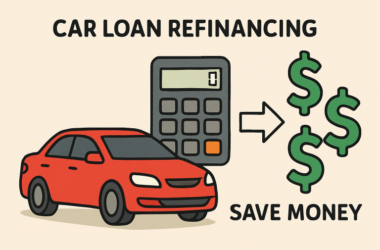The Rise of Digital Transformation
Digital transformation is not a new term anymore. Even though industries across different sectors were undergoing digital transformation earlier as well. But now the processes have accelerated in transforming digitally.
Multiple statistical reports indicate that the technology and energy sectors have accelerated their digital transformation processes at the highest speed. Whereas, the rate of digital transformation in the eCommerce and retail sectors has sped by 70% since the lockdowns.
In other words, we can also say that the big companies that are keeping pace with the digital transformation are able to better contribute to the economy by availing of custom e-commerce development services.
The benefits of digital transformation are widely talked about and well-known by every industry. However, such a quick transformation poses challenges like skill gaps and cultural differences. There is friction created due to a lack of clarity on transformation strategies and unplanned or insufficient alignments across the departments in an organization.
Online mediums have enabled the user to choose from a wider bucket of products that are available at better prices than ever before. Today, even when users visit a physical shop, they quickly browse through the eCommerce website for product, variety, and price comparison.
Digital Transformation in eCommerce
Shopping online has become a normal activity today. The general public is exploring the products online and making purchase decisions as a normal practice. However, the e-commerce industry trends are changing, so businesses need to embrace digital transformation to take their e-commerce store to the next level.
The following are the factors required for the successful digital transformation of e-commerce businesses and web stores. These are the basic expectations that customers of this day and age have, that are driving digital transformation across the eCommerce industry.
Increasing Customer Demands
Convenience outshadows brand loyalty, especially with the current eCommerce adoption trends. Wise customers look for better pricing, ease of pick-up & delivery, timely delivered orders, and ease of return. These ever-increasing demands and expectations of customers are pushing the organization to opt for newer technologies to keep up with the pace of customer demands.
Direct-to-Consumer Sales
As the competition is ever-increasing, brands are now looking for ways to sell directly, preferring direct-to-consumer strategies. By enabling the customers to directly interact with the brand on their own platform rather than the aggregator online shopping platforms, organizations can cut costs, offer better prices to customers, and generate better revenue. Customers, too, get a better product experience by interacting with the brands directly.
Digital eCommerce has made it possible and has made it easier for businesses to reach out to direct customers bypassing the link of wholesalers. Direct-to-consumer enables online sellers to understand their customers better, enabling them to increase and boost their business revenue.
DTC enables brands to customize and personalize their products as per the demand of their consumers. Interacting directly with customers also helps in offering better support, thus creating a better customer experience and brand loyalty.
Robust Delivery Systems
Online shopping has brought the ease of returning the product with it. If a wrong product or defective product is delivered to the customer, they can effortlessly exchange it or return it. However, with an increase in demand, customers now expect they get the right order at the right time on the first go. The inaccurate order deliveries, might put off the customers and subsequently affect your business. Therefore, having a robust delivery system and supply chain in place is one of the critical factors that drive organizations to opt for digital transformation.
Contactless Shopping
Customers want retailers to provide a contactless experience when shopping. This is for better safety enabling an enhanced online shopping experience along with contactless payments. This technological advancement has also brought up the need to provide a personalized online experience to customers. Reflecting commitment towards the end user, thus providing a fulfilling customer experience.
Personalized Recommendations
Artificial intelligence has made eCommerce processes smarter. By understanding things like customer behavior, customer choices, and customer preferences, the systems can propose products that surely provide the feeling of personalization. People always appreciate when they don’t have to go through endless searching. Personalized recommendations help users make efficient and smart decisions, as they get recommendations based on their liking. This saves a lot of time. That saved time can then be invested in finding the best deal regarding that product or category. Not only does it help the users, but also helps the store owner as it increases the probability of a successful sale.
Embedded Chatbots
AI & chatbots have made a prominent place in the digital transformation process for e-commerce businesses. Providing personalized experiences has become easier by answering customer queries in no time, making the customer feel special. It’s expected to continue to cater to the markets with changing trends, ensuring to meet the customer’s requirements without fail.
The statistics show that customers of the eCommerce industry are the highest receptive audience to chatbot responses. Most users find chatbots to be useful tools for helping customers by providing a personalized experience.
Future of eCommerce
E-commerce businesses must stay updated with new trends, customer expectations, and behaviors to strategically transform their e-commerce business.
Building a new customer base with the brand campaigners created because of better CX will lead to a larger customer base.
The big data algorithms will understand the customer’s past shopping behaviors. This provides them the options for bespoke products and relevant recommendations.
By and large, data will always be the key to the future of the eCommerce industry. Understanding the conversion rates and optimizing the products shall continue and enhance further, in the future.
Making the customer journey easy and efficient at every step of the process is likely to increase conversion rates. The eCommerce industry’s growth depends mainly on the conversion rate, in other words, optimization will be the need of the hour.
The future of eCommerce will have multiple alternative methods of payment options. Options like blockchain-based payment such as Bitcoin, and Ethereum. As well as options of buy-now-pay-later will become the norm in the future of the eCommerce industry.
Conclusion
The trend of consumers becoming addicted to mobile shopping. This is because of the attractive user interface, great choices, and ease of shopping is likely to continue. However, eCommerce businesses need to ensure that they evolve continuously, in terms of technology to keep the customers engaged and to ensure that the customers keep coming back to them for new and better experiences.
You can hire our e-commerce developers like Shopify developers, Magento developers, WooCommerce developers, and BigCommerce developers, to build modern, intuitive & optimized e-commerce web stores with exceptional user experience and user interfaces.
We also provide eCommerce development services. Our company offers a complete range of eCommerce development services to help your business develop custom web stores. Hire our e-commerce developers for your next e-commerce development project.








